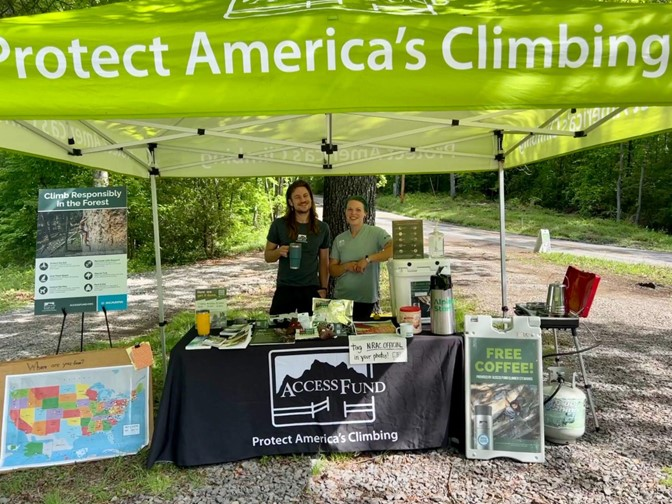The National Park Service is hosting two climbing stewards at the New River Gorge National Park and Preserve and at Summersville Lake.
With the rise in the popularity of climbing in the region, the agency hired some ambassadors to educate climbers about climbing etiquette, conservation and safety.
Chief Ranger Frank Sellers said these stewards have worked to educate more than 5,000 park visitors since this program started six months ago.
“These folks, you know, are climbers themselves, and they’re passionate about their sport,” Sellers said. “And you know, they’re passionate about the parks, and about where they climb and about protecting rock climbing areas for the future.”
The stewards will also be helping climbers bridge the gap between climbing indoors and climbing on natural rock.
“People bring dogs to the park, people have to use the restroom,” Sellers said. “You know, if you’re in a climbing gym, that’s easy. If you’re in a natural setting that’s maybe more difficult. You got to have a plan.”
The climbing stewards are hosting “climber coffees” at popular trailheads on Fridays and Saturdays in the national park and Sundays at Summersville Lake through the fall.
They will also be visiting popular climbing spots and continuing conversations with climbers about conservation. The program is an alliance between the New River Gorge National Park and Preserve, the New River Alliance of Climbers and the U.S. Army Corps of Engineers.
